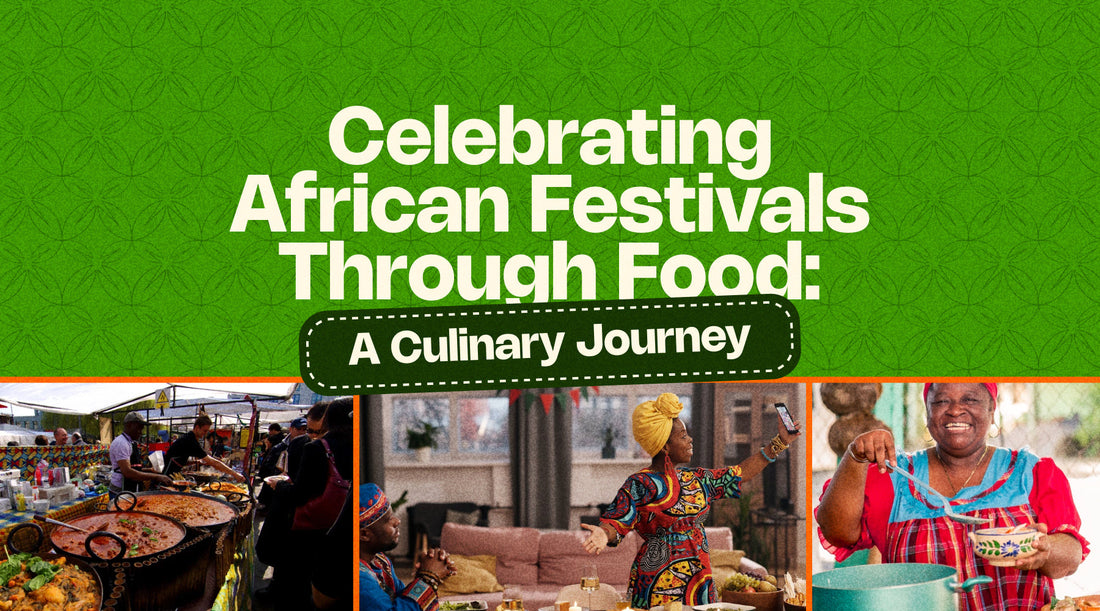
Celebrating African Festivals Through Food: A Culinary Journey
Share

They say you can tell when a festival is near in Africa, not by the talking drums, but by the smell of food. Smoke from roasting yam curls into the sky. Pepper grinding becomes louder than morning birds. Market women laugh as they sell out before noon. In Africa, every festival is first a feast, and food has always been the language of joy.
The New Yam Festival – Nigeria
Once upon a time, in the villages of Eastern Nigeria, no one dared touch the new harvest of yam until the festival. It wasn’t just food; it was pride, survival, and thanksgiving. On that day, families gathered with roasted yam dripping in palm oil, pounded yam soft enough to melt on your tongue, and soups that told stories of grandmothers’ recipes. Even in the diaspora today, Nigerians mark the season with yam because yam is never just yam. It’s a reminder of heritage.
Homowo – Ghana
In Ghana, the Ga people celebrate Homowo, the “festival of plenty.” The story goes that their ancestors once faced famine, and when harvest returned, they threw a feast so grand it echoed through generations. Families prepare kpekple (a fermented cornmeal dish) served with palm nut soup, and children run around with bowls as laughter fills the air. Homowo is proof that food is more than survival — it is victory turned into flavor.
Meskel – Ethiopia
In Ethiopia, the Meskel festival is a blaze of color and faith, but the food is what roots the celebration in homes. After the fasting, doro wat (a rich chicken stew) with injera becomes the center of the table. The peppery aroma, the shared platter, the way hands tear into injera together — Meskel isn’t complete without that moment when food gathers everyone as one family.
Heritage Day – South Africa
Further south, Heritage Day in South Africa is less folklore and more fire. The braai is the heartbeat — meat sizzling, voices rising, children dancing around the smoke. Families gather in gardens, apartments, or parks, but the spirit is the same: food as culture, food as memory, food as identity.
Tabaski – Senegal
In Senegal, Tabaski (Eid al-Adha) is the feast of feasts. Whole families prepare lamb, seasoning it with garlic, onion, and mustard before grilling or cooking it with rice. Neighbors share plates across fences, and no one eats alone. It is abundance, generosity, and love, all told through food.

Festivals Away from Home
Now picture this: you’re in the U.S., far from the village square or the bustling markets, but you can still bring that festival spirit into your apartment. The same yam, the same palm oil, the same spices that flavored your childhood festivals are still within reach. Food is how we carry tradition across oceans, how we make a one-bedroom apartment feel like a family compound, how we keep our festivals alive even in new lands.
At MamaJones, we believe that every African in the diaspora deserves to taste their heritage not once a year, but every day. From yam to palm oil, from spices to fresh produce, we bring the market stalls to your doorstep.
Shop at MamaJones today, and let every meal carry the festival spirit of home.
